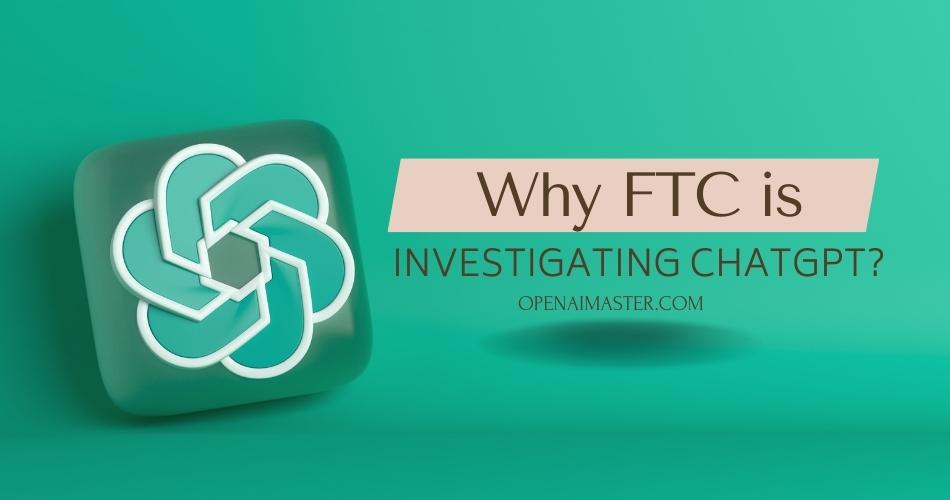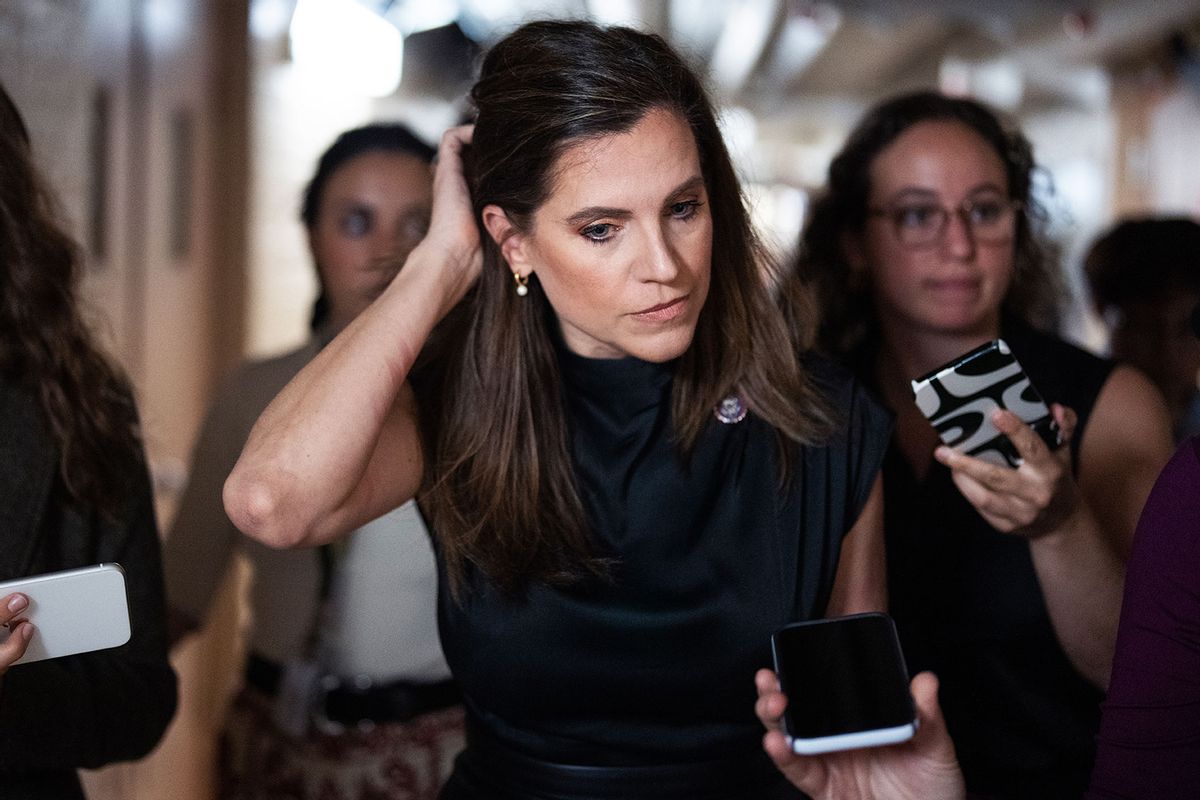FTC Investigates OpenAI's ChatGPT: What It Means For AI

Table of Contents
The FTC's Concerns Regarding ChatGPT and Data Privacy
The FTC's investigation into OpenAI centers on concerns about ChatGPT's data privacy practices and potential violations of consumer protection laws. The commission is scrutinizing how OpenAI collects, stores, uses, and protects the vast amounts of personal data fed into its model to train and improve its capabilities. This raises serious questions about user privacy and the potential for misuse of sensitive information.
- Potential violations of the COPPA Act (Children's Online Privacy Protection Act): ChatGPT's accessibility to minors raises concerns about the collection and use of children's data without parental consent, potentially violating COPPA.
- Concerns about the collection, storage, and use of personal data: The sheer volume of data used to train ChatGPT, including personal information scraped from the internet, raises concerns about potential breaches and unauthorized access. The lack of transparency regarding data handling practices exacerbates these concerns.
- Risks associated with biased or discriminatory outputs from the model: ChatGPT's responses are shaped by the data it's trained on, which may reflect existing societal biases. This can lead to discriminatory or unfair outcomes, potentially impacting individuals' access to opportunities or services.
- Lack of transparency regarding data handling practices: OpenAI's data practices have lacked sufficient transparency, making it difficult for users to understand how their data is being used and protected.
The potential penalties OpenAI faces range from significant fines to mandated changes in its data handling practices and even structural changes to its business model. The outcome of this investigation will set a crucial precedent for the entire AI industry.
ChatGPT's Impact on Consumer Protection
Beyond data privacy, the FTC is also concerned about the potential for ChatGPT to be misused for deceptive practices. The technology's ability to generate human-quality text presents a significant risk to consumer protection.
- Potential for generating fake reviews or social media posts: ChatGPT can be used to create convincing but false reviews, manipulating consumer opinions and potentially damaging legitimate businesses.
- Risks associated with deepfakes and misinformation campaigns: The creation of realistic deepfakes and the spread of misinformation using ChatGPT pose a serious threat to public trust and could have significant political and social consequences.
- Challenges in verifying the authenticity of content generated by ChatGPT: The ease with which ChatGPT can generate convincing text makes it difficult to distinguish between genuine and AI-generated content, undermining consumer trust in online information.
- The need for stronger regulations to protect consumers from AI-generated scams: The potential for AI-generated scams, including phishing attempts and fraudulent solicitations, necessitates stronger regulatory measures to protect consumers.
The FTC investigation underscores the critical need to establish clear guidelines and regulations to prevent the misuse of AI for deceptive purposes and maintain consumer trust in the digital landscape.
The Future of AI Regulation in Light of the OpenAI Investigation
The FTC's scrutiny of OpenAI's ChatGPT is likely to trigger increased regulatory pressure on the entire AI industry. This investigation serves as a wake-up call, forcing a much-needed conversation about ethical AI development and responsible innovation.
- Increased regulatory pressure on AI developers to prioritize ethical considerations: Expect stricter guidelines and increased oversight on AI development processes, placing a strong emphasis on ethical considerations.
- The need for stricter guidelines on data collection and usage: Companies developing and deploying AI models will face increased scrutiny on their data collection and usage practices, leading to stricter regulations on data privacy and security.
- The development of robust mechanisms for detecting AI-generated misinformation: There will likely be an acceleration in the development and implementation of technologies and processes designed to detect and mitigate the spread of AI-generated misinformation.
- Potential for self-regulatory initiatives within the AI industry: In response to regulatory pressure, the AI industry itself may adopt stricter self-regulatory measures to ensure responsible AI development.
The global landscape of AI regulation is rapidly evolving, with various countries and international organizations exploring different approaches. Increased international cooperation will be crucial in establishing consistent and effective standards for AI governance.
OpenAI's Response and Future Actions
OpenAI has acknowledged the FTC investigation and stated its commitment to addressing the concerns raised. While specific actions remain to be seen, it's likely that OpenAI will implement changes to its data handling practices, enhance transparency, and potentially modify ChatGPT's algorithms to mitigate the risks of biased or harmful outputs. The company might also invest heavily in developing tools and techniques for detecting and preventing the misuse of its technology.
Conclusion: Understanding the Implications of the FTC's Investigation into OpenAI's ChatGPT
The FTC's investigation into OpenAI's ChatGPT marks a significant turning point in the regulation of artificial intelligence. The investigation's findings will have far-reaching consequences for OpenAI and other AI developers, highlighting the critical need for responsible AI development practices and robust regulatory frameworks to protect user privacy and prevent the misuse of this powerful technology. The implications of "FTC Investigates OpenAI's ChatGPT" are profound, and understanding them is vital for navigating the future of AI. Stay informed about this ongoing investigation and future developments in AI regulation. Learn more about AI ethics and regulation through resources like the FTC website and leading academic publications on the subject. The future of AI hinges on our collective commitment to responsible innovation.

Featured Posts
-
 Rep Nancy Mace And Constituent Clash Tensions Rise In South Carolina
Apr 24, 2025
Rep Nancy Mace And Constituent Clash Tensions Rise In South Carolina
Apr 24, 2025 -
 Bethesdas Oblivion Remastered Officially Released Today
Apr 24, 2025
Bethesdas Oblivion Remastered Officially Released Today
Apr 24, 2025 -
 John Travolta Honors Late Son Jetts 33rd Birthday With Moving Photo
Apr 24, 2025
John Travolta Honors Late Son Jetts 33rd Birthday With Moving Photo
Apr 24, 2025 -
 President Trump On Jerome Powell No Firing Intended
Apr 24, 2025
President Trump On Jerome Powell No Firing Intended
Apr 24, 2025 -
 Instagram Launches Rival Video Editor To Attract Tik Tok Creators
Apr 24, 2025
Instagram Launches Rival Video Editor To Attract Tik Tok Creators
Apr 24, 2025
